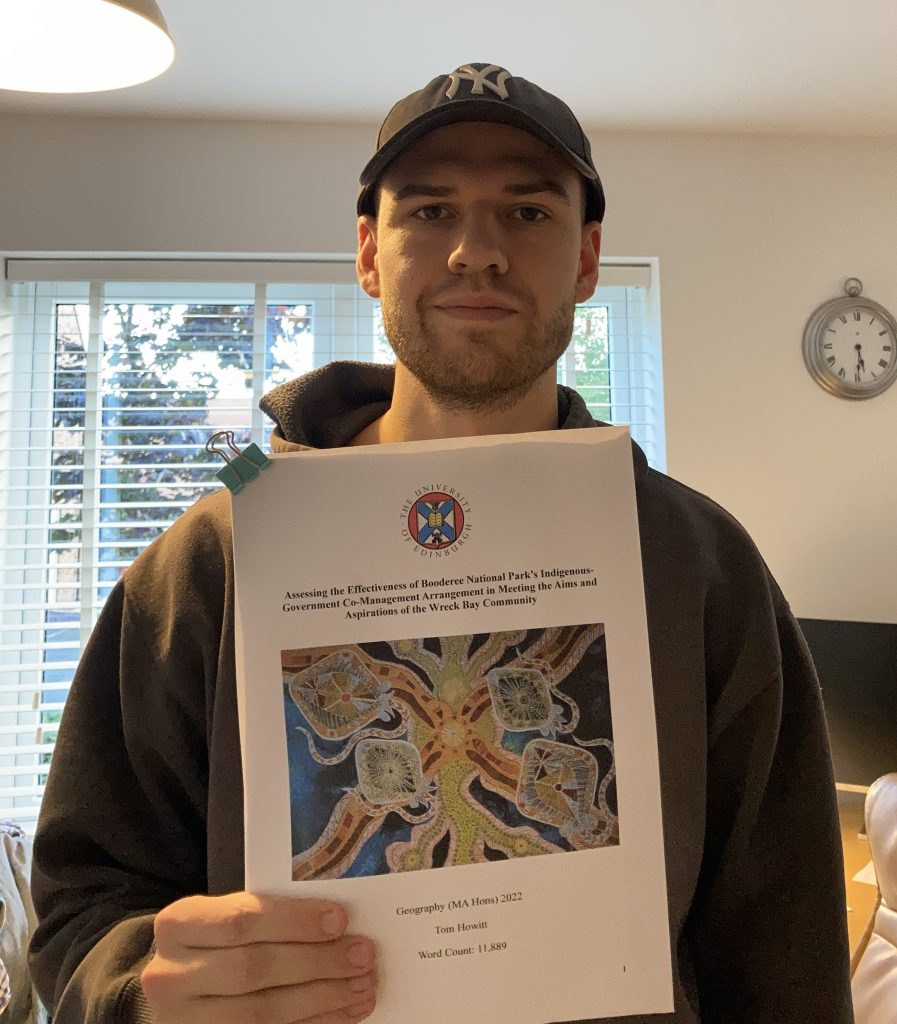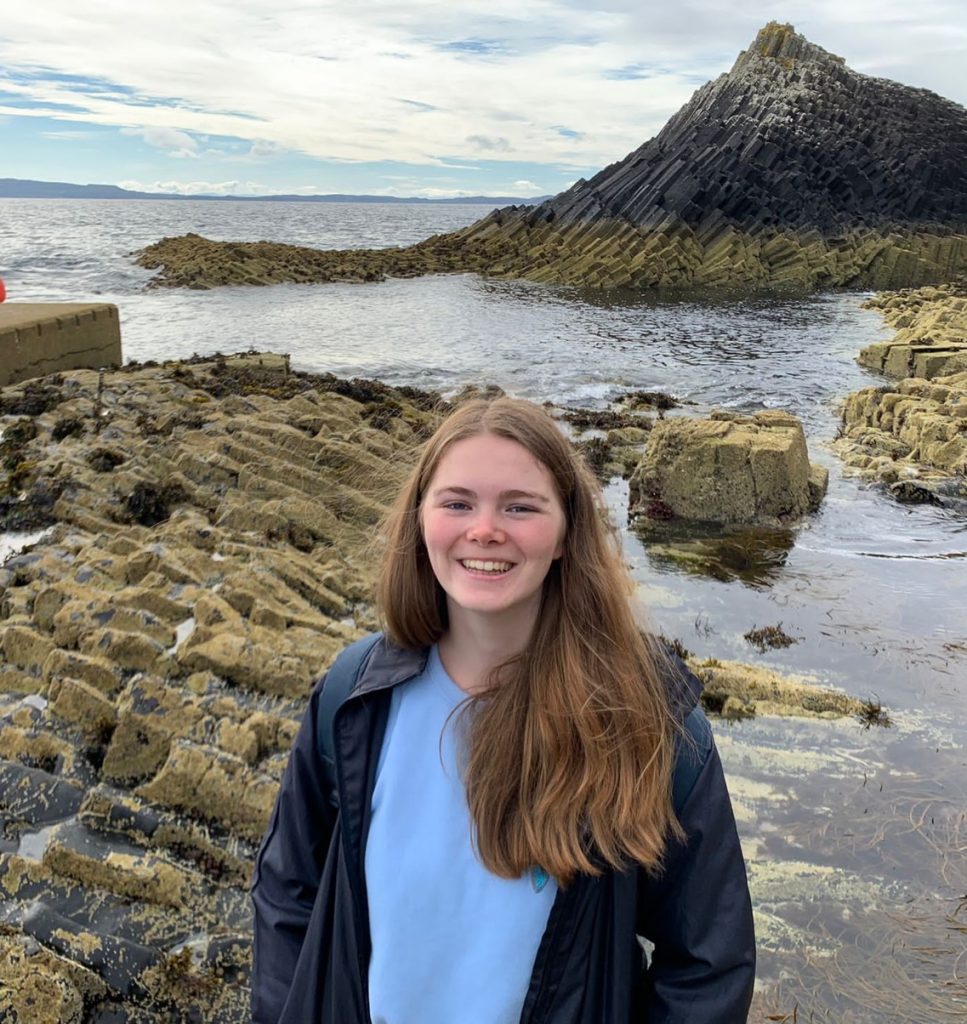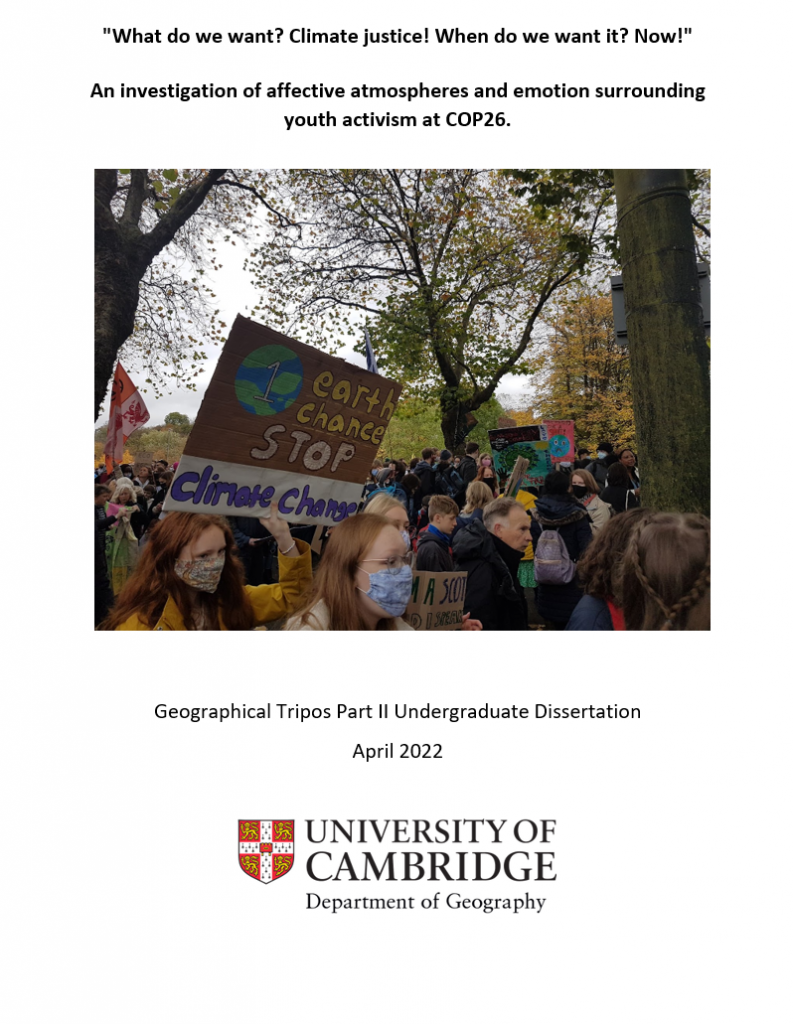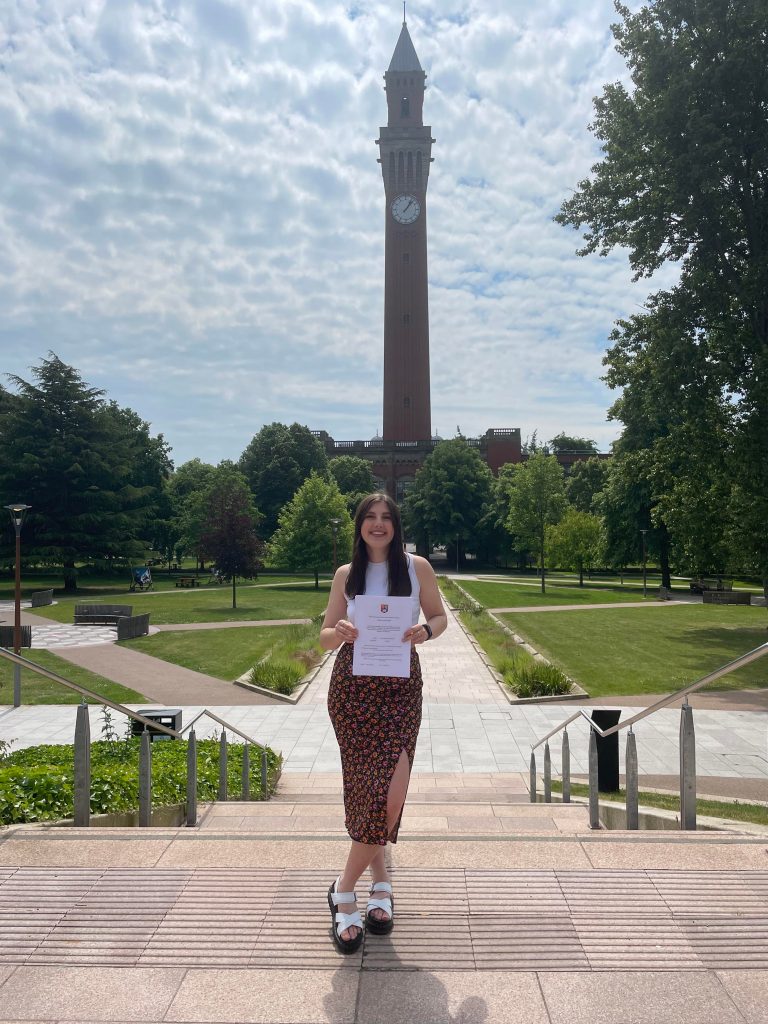PYGYRG Dissertation Prize Winners 2022
1st Place Winner
Tom Howitt “Assessing the Effectiveness of Booderee National Park’s Indigenous-Government Co-Management Arrangement in Meeting the Aims and Aspirations of the Wreck Bay Community” (University of Edinburgh).
The scope and style of my dissertation project came with many logistical and ethical challenges, and so I am delighted that my hard work has been recognised by the PYGYRG! I very much enjoyed working with the Wreck Bay Community to establish my research aims and in collecting the interview data. Their way of understanding the world provided the basis for my decolonial methodology, which in turn helped me to produce a meaningful and politically-charged piece of work; this made writing the dissertation all the more rewarding and I would encourage others to adopt a similar approach in their own research.

2nd Place Winner
Ellie Kirkland “What do we want? Climate justice! When do we want it? Now!” An investigation of affective atmospheres and emotion surrounding youth activism at COP26” (University of Cambridge).
My dissertation explored the more-than-representational side of climate activism: the visceral, emotive and affective. I used a triangulation of interview data, participant observation and auto-ethnography to investigate the broad question ‘how are youth activists affected at COP26?’. It was really exciting to advocate for patchwork ethnography and embrace my disabled body as a source of insight into the inherently partial, differentiated nature of affect. I explored ways in which time, so central in climate discourse, is also embedded in the material, affective experience of climate activism and highlighted the unsustainable boom-and-bust rhythm of UNFCCC cycles. Interviewing other young activists was a particular highlight – I am immensely grateful to all involved for making this project possible.


3rd Place Winner
Alice Shearstone ““We had to be adaptable, we had to be flexible, we had to be willing to change”: A study into the impact of COVID-19 on Non-Governmental Organisation support for asylum seekers and refugees in the Midlands.” (The University of Birmingham).
Entitled “We had to be adaptable, we had to be flexible, we had to be willing to change”: A study into the impact of COVID-19 on Non-Governmental Organisation support for asylum seekers and refugees in the Midlands”, my dissertation research sought to assess the impact which COVID-19 had on social and emotional, basic living needs and legal support which NGOs provide to asylum seekers and refugees in the Midlands region of England. Subsequently, the project used these findings to make suggestions for how NGOs can adapt their future support to ensure it is of the best quality and efficiency. Within this, it used the time-space and cyberspace geography theories to gain an understanding of how changes to NGO provision due to COVID-19 changed uses of time and space and how such changes impacted either negatively or positively on the support. I found that engaging with NGOs through questionnaires and interviews was enjoyable and insightful, however the relevance and meaningfulness of the work gave me the deepest sense of contentment.

An enormous thank you to all who entered this year’s dissertation prize, the standard was excellent. It has been great to see the wealth and quality of participatory research that is being undertaken. The 2023’ Dissertation Prize call for applications is coming soon! Don’t miss out – join the PyGyRG Jiscmail for all announcements.